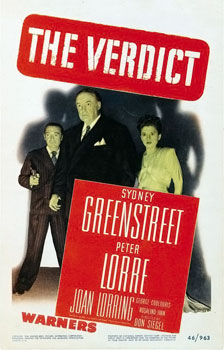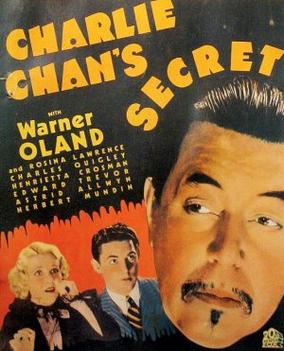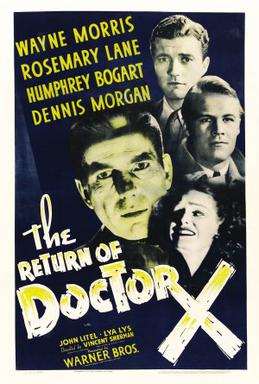
John Arthur Kennedy was an American stage and film actor known for his versatility in supporting film roles and his ability to create "an exceptional honesty and naturalness on stage", especially in the original casts of Arthur Miller plays on Broadway. He won the 1949 Tony Award for Best Featured Actor in a Play for Miller's Death of a Salesman. He also won the Golden Globe for Best Supporting Actor for the 1955 film Trial, and was a five-time Academy Award nominee.

The Devil and Miss Jones is a 1941 American comedy film directed by Sam Wood and starring Jean Arthur, Robert Cummings, and Charles Coburn. Its plot follows a department store tycoon who goes undercover in one of his Manhattan shops to ferret union organizers, but instead becomes involved in the employees' personal lives.

John Rummel Hamilton was an American actor who appeared in many movies and television programs, including the role as the blustery newspaper editor Perry White in the 1950s television program Adventures of Superman.

Mystery of the Wax Museum is a 1933 American pre-Code mystery-horror film directed by Michael Curtiz and starring Lionel Atwill, Fay Wray, Glenda Farrell, and Frank McHugh. It was produced and released by Warner Bros. and filmed in two-color Technicolor; Doctor X and Mystery of the Wax Museum were the last two dramatic fiction films made using this process.

John Francis Regis Toomey was an American film and television actor.

Robert William Armstrong was an American film and television actor noted for playing Carl Denham in the 1933 version of King Kong by RKO Pictures. He delivered the film's famous final line: "It wasn't the airplanes. It was beauty killed the beast."

Jonathan Hale was a Canadian-born film and television actor.

The Verdict is a 1946 American film noir mystery drama film directed by Don Siegel and written by Peter Milne, loosely based on Israel Zangwill's 1892 novel The Big Bow Mystery. It stars Sydney Greenstreet and Peter Lorre in one of their nine film pairings, as well as Joan Lorring and George Coulouris. The Verdict was Siegel's first full-length feature film.

John Farrell MacDonald was an American character actor and director. He played supporting roles and occasional leads. He appeared in over 325 films over a four-decade career from 1911 to 1951, and directed forty-four silent films from 1912 to 1917.

Gentleman Jim is a 1942 film directed by Raoul Walsh and starring Errol Flynn as heavyweight boxing champion James J. Corbett (1866–1933). The supporting cast includes Alexis Smith, Jack Carson, Alan Hale, William Frawley, and Ward Bond as John L. Sullivan. The movie was based upon Corbett's 1894 autobiography, The Roar of the Crowd. The role was one of Flynn's favorites.
David Ross Lederman was an American film director noted for his Western, action, and adventure films of the 1930s and 1940s.

Charlie Chan's Secret is a 1936 American mystery film directed by Gordon Wiles and starring Warner Oland, Henrietta Crosman and Rosina Lawrence. It is the tenth film in Fox's Charlie Chan series featuring Oland as the detective.

The Return of Doctor X is a 1939 American science fiction-horror film directed by Vincent Sherman and starring Wayne Morris, Rosemary Lane, and Humphrey Bogart as the title character. It was based on the short story "The Doctor's Secret" by William J. Makin. Despite supposedly being a sequel to Doctor X (1932), also produced by Warner Bros., the films are unrelated.

Footsteps in the Dark is a 1941 American comedy mystery film directed by Lloyd Bacon and starring Errol Flynn, Brenda Marshall and Ralph Bellamy. It was produced and distributed by Warner Bros. Flynn plays a novelist and amateur detective investigating a murder. It takes its title from the 1935 play Footsteps in the Dark by Ladislas Fodor and also used material from the 1937 play Blondie White by Jeffrey Dell.

Douglas Richards Kennedy was an American actor who appeared in more than 190 films from 1935 to 1973.

Joan Perry was an American film actress.

Paul Stanton was an American character actor and bit-part player in American films.

The Amazing Mr. Williams is a 1939 American screwball comedy film produced by Everett Riskin for Columbia Pictures and directed by Alexander Hall. The film stars Melvyn Douglas, Joan Blondell and Clarence Kolb. It was written by Dwight Taylor, Sy Bartlett and Richard Maibaum. The film is about a police lieutenant who is too busy solving crimes to marry his longtime fiancée, who decides to take action and get him to marry her and settle down. The film was released on November 22, 1939.

The Great Mr. Nobody is a 1941 American comedy drama film directed by Benjamin Stoloff and written by Ben Markson and Kenneth Gamet. The film stars Eddie Albert, Joan Leslie, Alan Hale, Sr., William Lundigan, John Litel, Charles Trowbridge and Paul Hurst. The film was released by Warner Bros. on February 15, 1941.

Cliff Clark was an American actor. He entered the film business in 1937 after a substantial stage career and appeared in over 200 Hollywood films. In the last years of his life, he also played in a number of television productions.



















